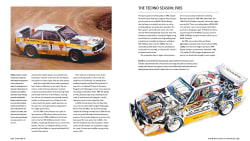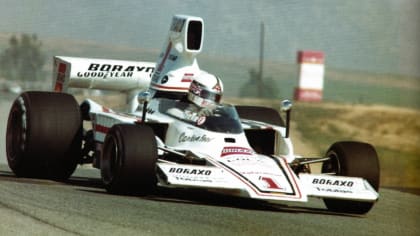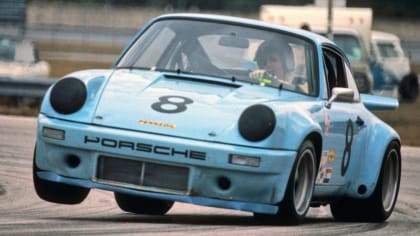The Equipment That Fueled the Industry
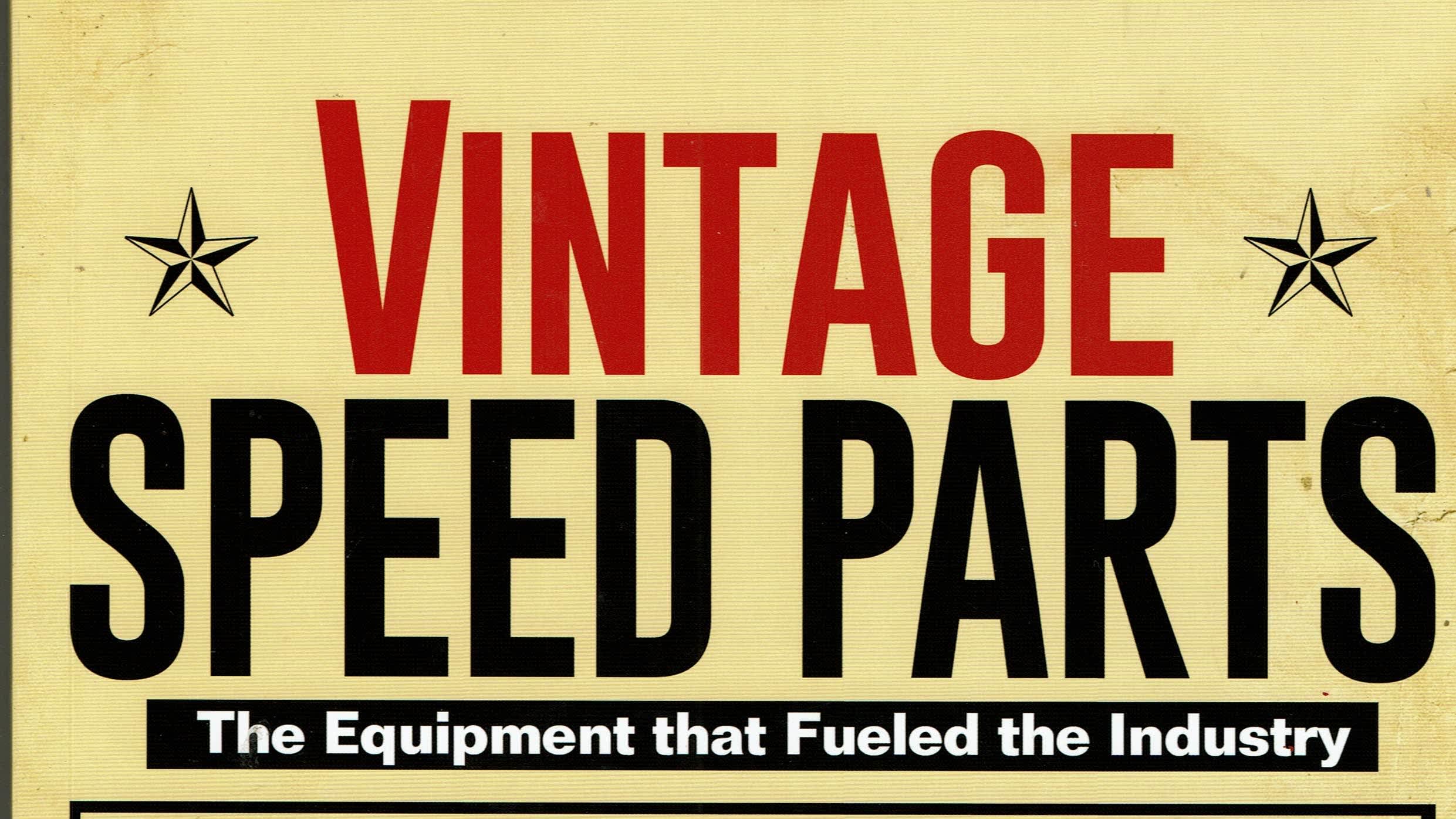
Book Review: Vintage Speed Parts
The history of Hot Rodding has been related in a number of very interesting (some very scholarly) books over the years and this one ranks right up there with the best of them in terms of how it tells the uniquely American, action-packed performance story from the standpoint of the hardware: the parts, pieces, and engineering that made the movement mobile.
By Doug Stokes
Wed, Jan 4, 2023 04:36 PM PST
Book Title: VINTAGE SPEED PARTS -The Equipment That Fueled the Industry
Author: Tony Thacker
ISBN: 978-1-61325-697-8
Publisher: CarTech Automotive Books and Manuals
Pages: 192
Illustrations: 455 b/w & color photos
Price: $39.95 USD
Photos courtesy CarTec/Tony Thacker Collection
...If truth be told (and it will be) the real, authentic, amazing “Vintage Speed Parts” that one of the acknowledged experts on the subject, Tony Thacker, catalogs here are really the people who designed, developed, sold, bought, and used those parts to go faster than the other guy. The old saying: “Parts is parts” only works when people design, build, and use ‘em.
That’s what’s what here...
Here, in 191 pages (and four hundred and fifty-five illustrations!), that history is examined, related, and thoughtfully celebrated by an author (that would be the redoubtable Mister Thacker) who long ago took a very deep, headfirst dive into the world of Hot Rodding and knows the code. Here’s how he breaks down the show:
Chapter 1: 1908-1932: Model Ts, Model As, and Chevrolets
Chapter 2: 1932-1942: The Ford V-8
Chapter 3: 1945-1948: Boom, Boom, Boom
Chapter 4: 1948-1951: At Last, the 1948 Show
Chapter 5: 1951-1955: The Chrysler Hemi Spells the Death of the Flathead Ford
Chapter 6: 1955-1962: Glory Days
Chapter 7: 1963-1966: Muscle Bound
Chapter 8: 1967-1973: Change Is in the Air
Epilogue
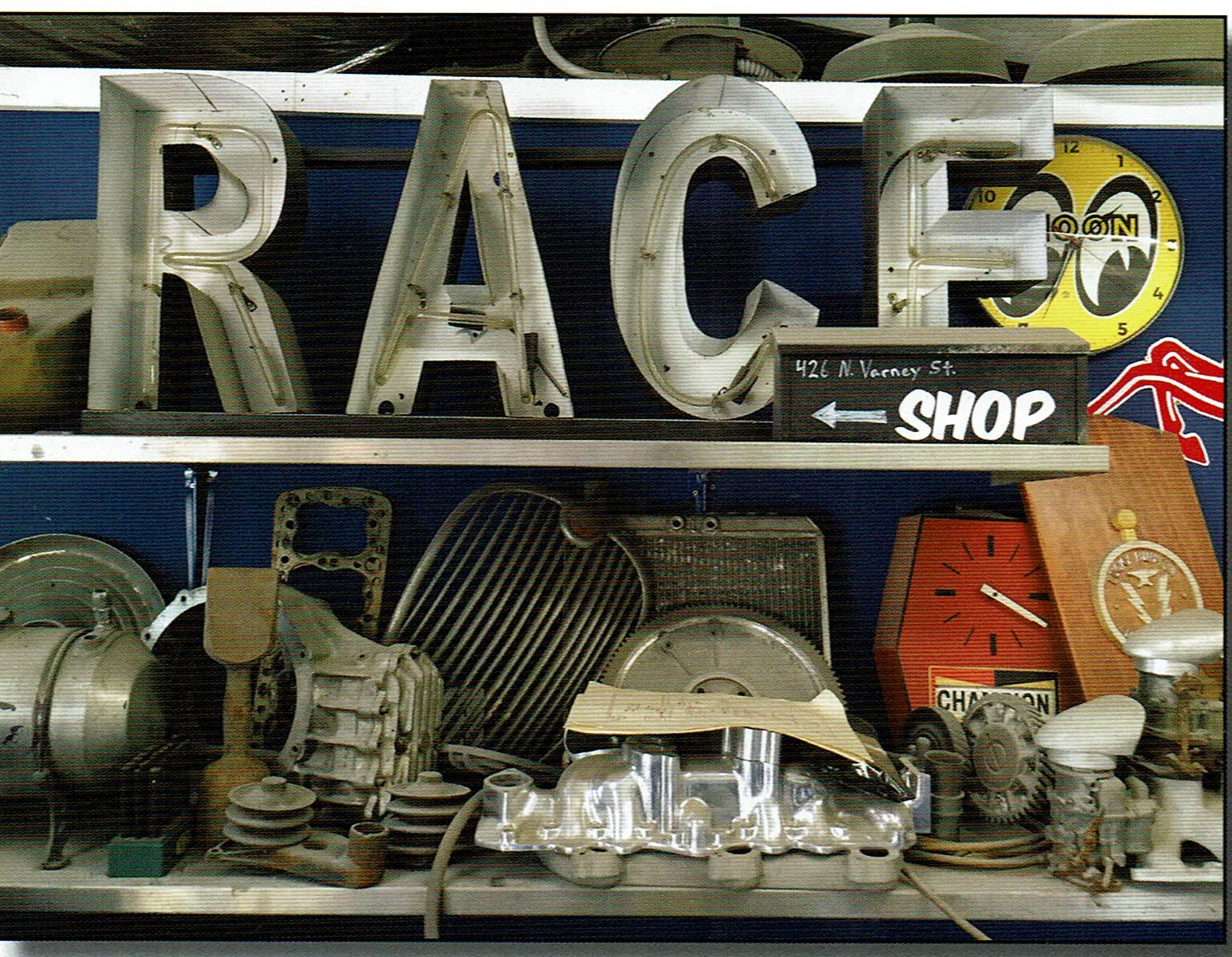
As the above promises, this fast-paced look back at the go-fast industry hits all to the high points (and a few lows as well). From back yard barnstormers based on Model A Fords, and using the stuff at hand, this is the story that (pardon the pun) “catalogs” the movement that’s still shaking at some very high tech levels today.
The old hot rodders called them “mills” and the stock guys call them “lumps” ... but regardless of what name they appear under, engines: big, honking V-8s with hemi heads and screaming superchargers that were meant for huge truck motors fiendishly cramming air and fuel into engines that were turning over half again as fast as they were designed to while spitting out mass quantities horsepower and torque, were the always and forever coin of the realm.
Here, and along the way making cars go faster and faster, a number of the above took some time to think about the industry as a whole, it’s public perception, and where it was headed. In 1963 they formed an organization and named it the Speed Equipment Manufacturers Association.
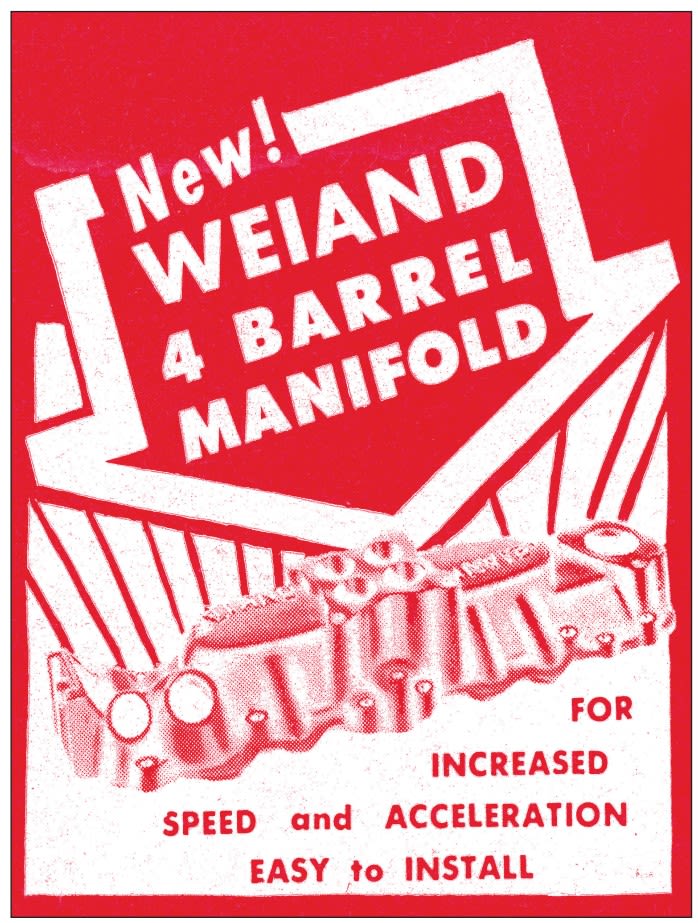
“SEMA” as it is still referred to today, put the industry on a professional basis and contributed mightily to the positive public image of the “Speed Equipment” business in all of it’s many variations. A tamer, more professional, change in that name came down the line a few years later, with the word “Specialty” taking the place of “Speed”, in the moniker what now is pegged as $50 billion (that’s with a B friends) dollar a year, worldwide industry.
Author Thacker (who came in to this book project as a relief author for a friend when the original writer fell ill) knows the stories and tells them well in this power sport that not only scorched the 1/4-mile dragstrips, but that saw 3 and 400 mile an hour runs on the Bonneville Salt Flats as well as wheel-to-wheel action on the high banks at Daytona, and on slice-em-up road courses like Riverside and Watkins Glen. And, he’ll tell you that influence on high speed motor competition remains to this day.
And then there’s guys in here like Dean Batchelor and Robert Petersen who put the who shebang in print with Hot Road Magazine a hardcore, tear-em-up, go-fast magazine unlike anything in print in those days. You read it and felt like you were on to something and it was about doing something about going fast.
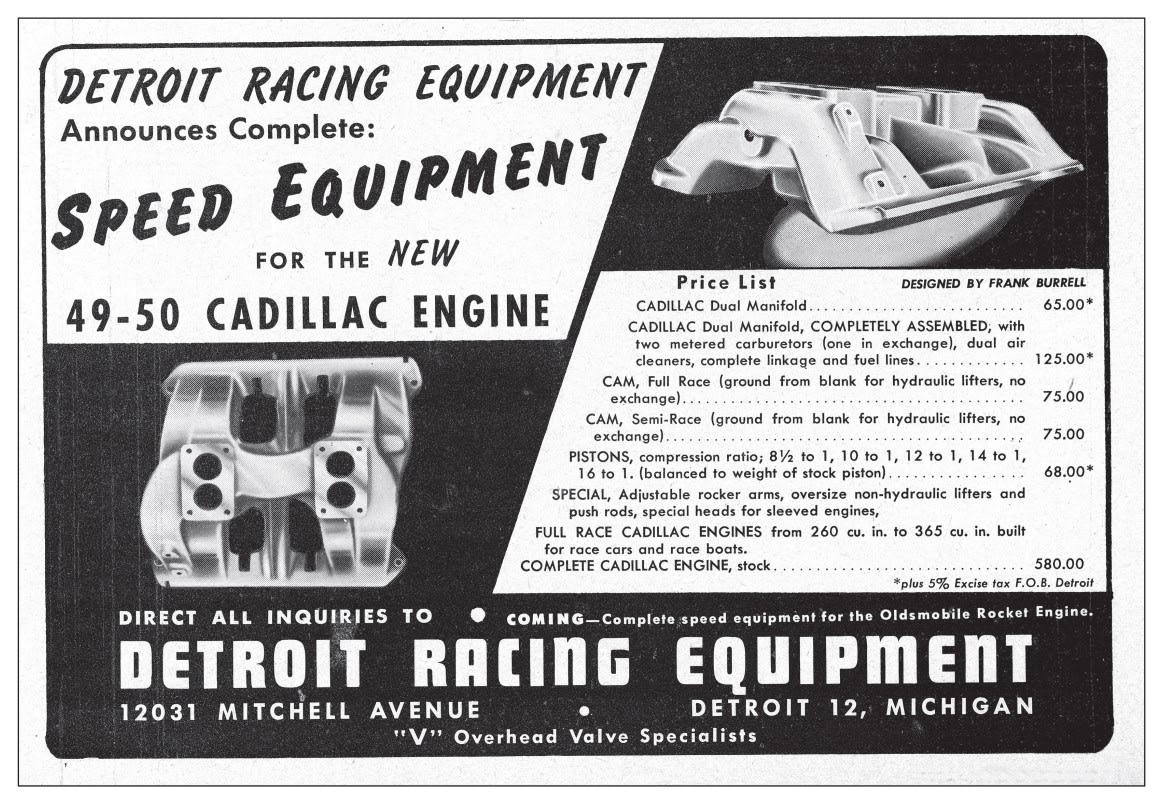
As we noted earlier the info box for this review promises 192 pages of hot rod history and a staggering 455 photos and (as I’ve tried to relate above) that delivers on both counts. In fact, many of the shots in this book are from private collections and have never been seen in print before. Hook that up an author’s copy that’s solidly rooted in fact, personal knowledge, and expert research … and you have an all-around satisfying read.
… The only things missing here are a scratch’n’sniff card that smells like a pair of burning M&H slicks and an MP3 recording of a mean old Chevy Rat motor roaring like a Lion with a (damn) toothache.
And this brings me to my one disappointment with this book: the lack of an index in a good, well-written, non-fiction book. For me, an index always stands as a structural outline (the “coming attractions” if you will) for a book. I find them very informative, and particularity helpful for books that cover a wide swath of names, places, and dates as this one does...
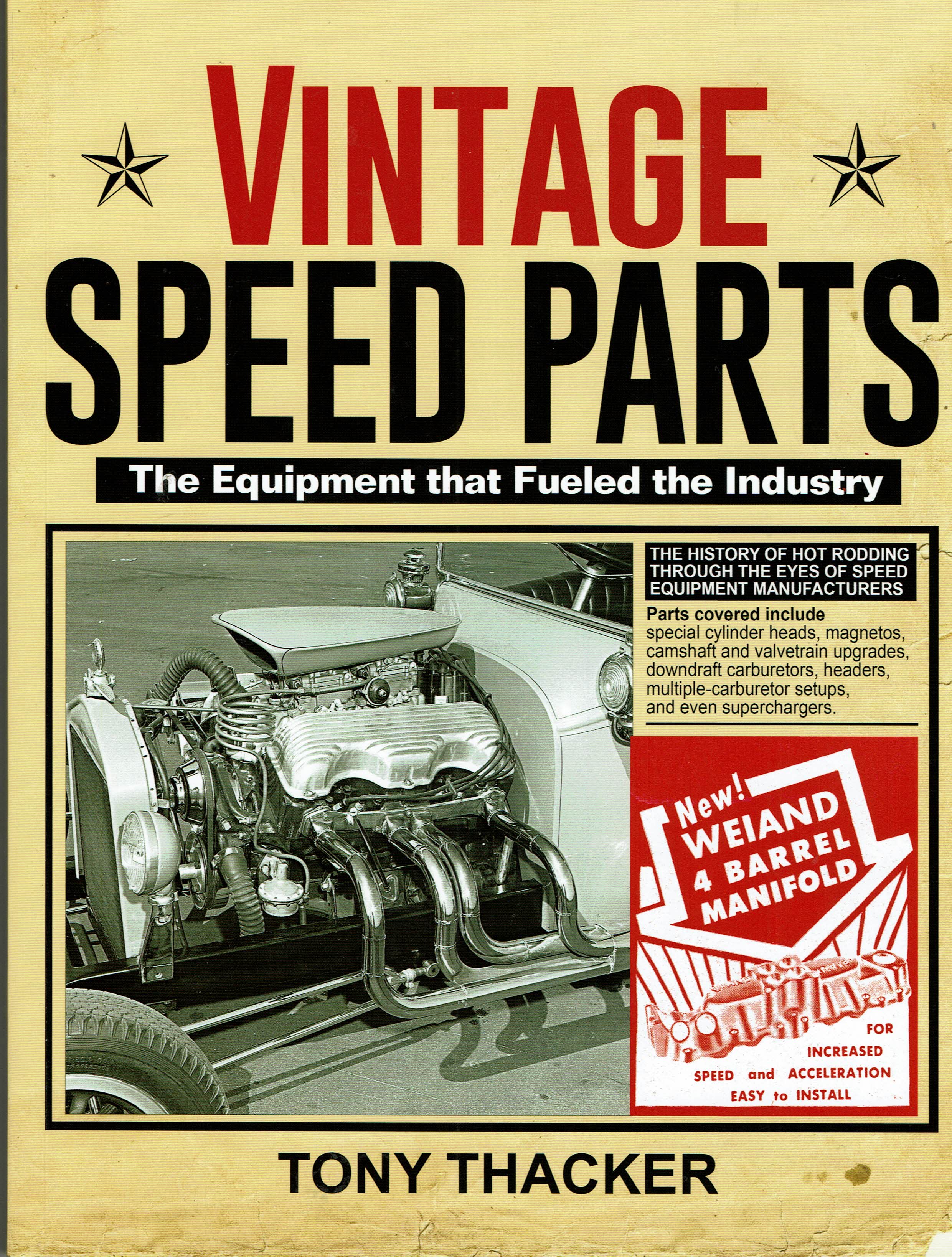
About The Author

Doug has a long and wide-ranging history in the motoring business. He served five years as the Executive Director of the International Kart Federation, and was the PR guy for the Mickey Thompson's Off-Road Championship Gran Prix. He worked racing PR for both Honda and Suzuki and was a senior PR person on the first Los Angeles (Vintage) Grand Prix. He was also the first PR Manager for Perris Auto Speedway, and spent over 20 years as the VP of Communications at Irwindale Speedway. Stokes is the recipient of the American Autowriters and Broadcaster’s 2005 Chapman Award for Excellence in Public Relations and was honored in 2015 by the Motor Press Guild with their Dean Batchelor Lifetime Achievement Award. 2025 saw Stokes voted into the Go Kart Hall of Fame. “… I’ve also been reviewing automobiles and books for over 20 years, and really enjoy my LACar assignments.” he added.

